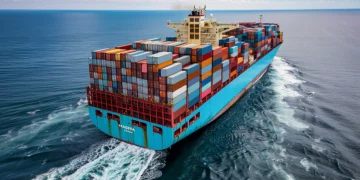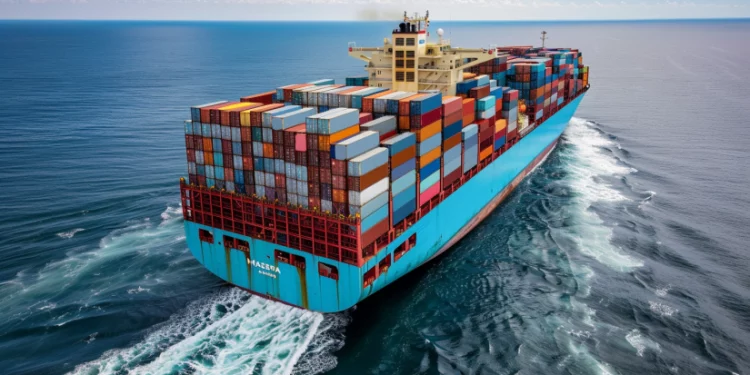The complexities of ocean freight documentation are set for a digital revolution as major shipping lines Maersk, CMA CGM, and MSC Mediterranean Shipping Company announce a groundbreaking partnership. This collaboration focuses on the development and implementation of a standardized, blockchain-powered platform for digital ocean bills of lading (eBOL). This move represents a significant leap towards streamlining processes, enhancing transparency, and boosting security within the ocean freight industry.
Streamlining the Paper Chase:
Traditional paper-based bills of lading (B/Ls) are a major source of friction in the ocean freight process. These documents require physical transfer, verification, and endorsement, leading to delays, inefficiencies, and potential fraud risks. The new eBOL platform aims to revolutionize this process by:
- Digitalization: Replacing paper documents with secure, digital records on a blockchain network.
- Enhanced Transparency: All stakeholders involved in a shipment – from exporters and importers to banks and customs authorities – can access real-time information on the status of the cargo in a secure and transparent manner.
- Increased Efficiency: The platform automates many manual processes associated with B/Ls, leading to faster trade document processing and quicker cargo release.
- Reduced Fraud Risk: Blockchain technology’s immutability and tamper-proof nature significantly minimizes the risk of fraud associated with traditional paper-based B/Ls.
A Collaborative Effort:
This partnership signifies a major shift towards industry-wide collaboration. By joining forces, these leading shipping lines aim to establish a standardized eBOL platform that can be adopted by all stakeholders within the ocean freight ecosystem. This standardization is crucial for ensuring seamless integration and widespread adoption of the technology.
Benefits for All:
The implementation of a standardized eBOL platform offers a multitude of benefits for all parties involved:
- For Shippers and Exporters: Faster trade document processing, reduced risk of delays, and improved visibility throughout the supply chain.
- For Importers and Consignees: Streamlined cargo clearance procedures and quicker access to goods.
- For Banks and Financial Institutions: Enhanced security and transparency for trade finance transactions.
- For Regulatory Bodies: More efficient document verification and improved trade facilitation.
Challenges and Considerations:
While the eBOL platform presents exciting possibilities, some challenges remain:
- Industry-Wide Adoption: Convincing smaller shipping lines and other stakeholders to participate in the platform might require time and effort.
- Regulatory Harmonization: Global regulatory frameworks need to be updated to fully recognize and accept eBOLs as legal equivalents of traditional paper B/Ls.
- Technical Infrastructure: Ensuring seamless integration of the platform with existing logistics and trade finance systems across the industry.
A Pioneering Step Towards a Digital Future:
The collaboration between Maersk, CMA CGM, and MSC marks a pioneering step towards a digital future for ocean freight documentation. By leveraging blockchain technology and fostering industry-wide collaboration, the eBOL platform has the potential to revolutionize the industry, leading to greater efficiency, transparency, and security within the global ocean freight ecosystem. As the platform evolves and overcomes challenges, we can expect a significant transformation in the way ocean freight documentation is handled, paving the way for a more streamlined and efficient future for global trade.























